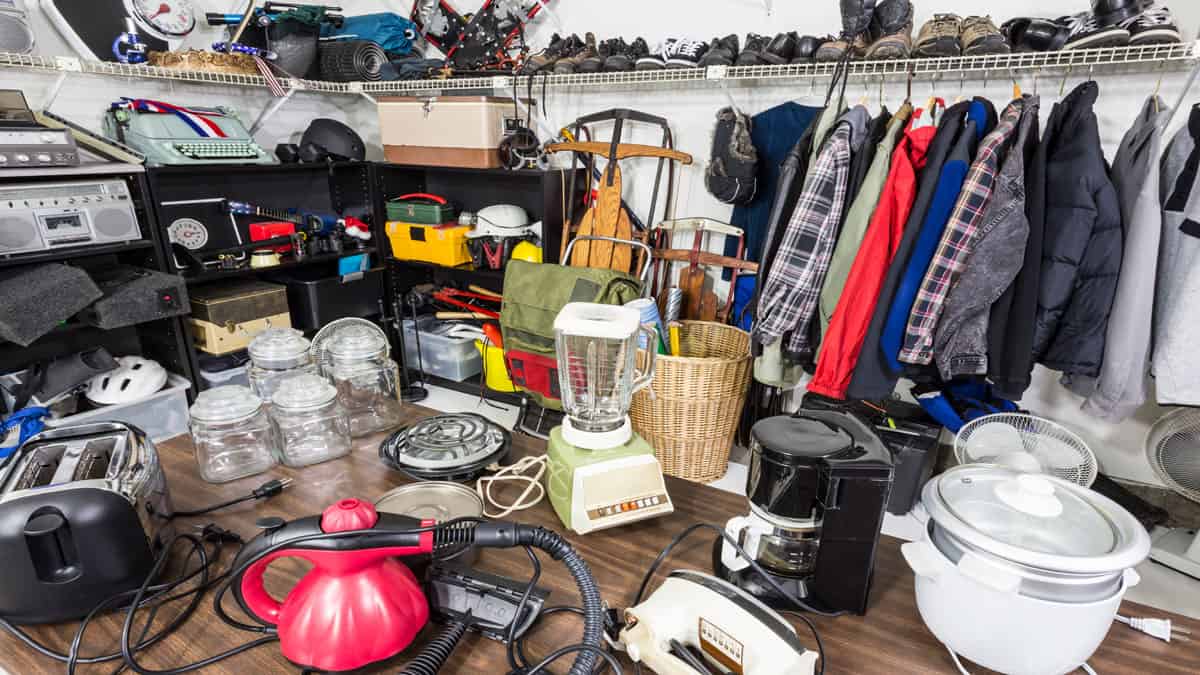THIS POST MAY CONTAIN AFFILIATE LINKS. PLEASE SEE MY DISCLOSURES. FOR MORE INFORMATION.
Are you stuck in the cycle of poverty and don’t know how to break away?
Have you grown up believing that there is no way out, leading to negative behavior patterns driving your life further into conditions of poverty?
It can be overwhelming to think about how to escape from this cycle with seemingly no options at hand.
But it doesn’t have to stay that way!
In this article, we are going to explore how breaking free from childhood habits that keep us in poverty can help us create lives filled with unlimited potential.
#1. Not Buying Wants

When you grow up without money, you rarely splurge on things you want.
Instead you only buy what you need.
So as an adult, you might have money, but your childhood roots still have you think that you cannot buy something fun, only things you need.
#2. Thinking You Aren’t Good Enough

Too often, poor people grow up thinking they are good enough or qualified for things.
This could be a new job, a new outfit, or something else.
This lack of self-esteem holds them back in many areas of life.
#3. Not Investing in Yourself

Not investing in yourself limits your personal growth, development, and potential.
Failing to invest in yourself through education, acquiring new skills, or pursuing personal passions can result in stagnation and missed opportunities.
But by investing in yourself, you gain the knowledge, abilities, and confidence necessary to navigate life’s challenges, seize new opportunities, and achieve your goals.
#4. Buying Cheap Things

While it may seem like a cost-effective approach to buy the cheapest items in the short term, cheap items often lack durability and reliability, resulting in frequent repairs or replacements.
This wastes your money in the long run.
When I bought my first house, I purchased the lowest-priced bath mats.
I thought I was being frugal. But the mats started falling apart after three washes, and I needed to buy a new set.
I would have saved money if I had simply bought a higher-quality set, even though it cost a little more.
#5. Short Term Thinking

Short term thinking can be easy to fall into when you are poor.
You need to focus on surviving each day as it comes, and as a result, you never develop the ability to look longer term.
The bad news is this kind of thinking can lead to poor decision-making, missed opportunities, and regret.
It’s important to unlearn this habit so that you can make decisions that will benefit your future self and help you achieve your long-term goals.
By shifting your mindset to a more long-term orientation, you can make more informed decisions, take calculated risks, and ultimately lead a more fulfilling life.
#6. Distrust of Financial Institutions

There are various reasons why people without money typically distrust financial institutions.
It could be that these people tend to pay more fees because of smaller balances. Or it could be that they have security knowing they possess their money, not some institution.
But not trusting financial companies can limit your financial opportunities and hinder your ability to manage your money effectively.
While being cautious and informed about financial matters is essential, a blanket of distrust can prevent you from accessing valuable services and resources.
Building relationships with reputable financial institutions allows us to benefit from their expertise, guidance, and a wide range of financial products that can help you achieve your goals.
By developing a balanced perspective and seeking out trustworthy institutions, we can make informed decisions, protect our assets, and maximize our financial well-being.
#7. Not Taking Everything That Has a Free Sign

Growing up, you might have picked up things on the side of the road with a free sign.
You might not have even had a use for the item, but you took it anyways because you never know.
While this seems like an innocent, frugal habit, it’s a poor habit that you need to unlearn.
Sure, there may be some hidden treasures in there, but more often than not, you’re just adding clutter to your life.
Plus, not everything free is necessarily of good quality.
You need to develop a growth mindset so that you aren’t living with a scarcity mindset that tells you you don’t have enough.
#8. Going to Work When Sick For Fear of Losing Your Job

This can be a tough habit to unlearn because you might still be working a job that does not offer paid time off.
And if you take a day off, you could lose your job.
But if you suffer from a bad cold or flu, pushing through and going to work might be a bad decision.
Exerting yourself could mean your body takes longer to get better, or you could get even more sick.
This could mean you have to take time off work, and instead of it being one day, it could be two or three.
If you are sick and fear losing your job, make sure you speak to your boss and not only leave a message saying you are not coming to work.
See if you can work overtime or on the weekend to make up for lost work if needed to keep your job.
It might not be ideal, but it will allow you to take off and still have a job to go to.
#9. Distrust of Others

It’s natural to have a healthy dose of skepticism when trusting others.
However, when that skepticism turns into full-blown distrust, it can significantly hinder personal and professional relationships.
Holding on to a deep-seated lack of trust can cause stress and anxiety, leading to resentment towards those around you.
By letting go of your distrust, you can build more profound and meaningful connections with others and create a more positive and fulfilling way of life.
#10. Fear of Success

Many people suffer from fear of success, but most people who grew up poor have this fatal flaw.
This is because, many times, you have to take a risk to achieve success, and when you don’t have money, this can be a scary thing.
But when you fear success, it keeps you from reaching your full potential and experiencing personal growth.
Overcoming this fear opens you to new opportunities, achievements, and personal satisfaction.
Embracing success allows you to explore your capabilities, build confidence, and create a positive impact in your life and the lives of others.
#11. The Guilt of Spending Money

When you don’t have money, it is natural that when you do, you spend on the things you absolutely need to have.
If there is something you would like to have, you probably feel guilty buying it because you know the money would be better used for things you need or to keep in case money gets tight again.
But feeling guilty about spending money can lead to constant anxiety and deprivation, preventing you from experiencing the joys and benefits of your hard-earned money.
It is important to recognize that responsible and mindful spending is a normal part of life, and allowing yourself to indulge in occasional purchases can enhance your well-being and provide you with opportunities for personal growth and enjoyment.
By letting go of the guilt, you can develop a healthier relationship with money and cultivate a balanced approach to spending.
#12. Overworking

Many believe that working harder and longer equates to success.
However, overworking is a poor habit that can negatively impact your health, relationships, and overall productivity.
Constantly pushing yourself to the brink of exhaustion can lead to burnout, decreased efficiency, and increased stress levels.
It’s important to recognize the signs of overworking and prioritize self-care to break this harmful cycle.
By unlearning the belief that overworking is necessary for success, you can lead a happier, healthier, and more fulfilling life.
Habits of the Wealthy

Do you what separates the wealthy from everyone else? It’s their habits.
The good news is learning their habits is simple which means with a little effort, you too can become wealthy.
How To Get Free Money

The idea of free money sounds like it can’t be true. But it actually is.
There are many ways you can get free money, from playing games, to watching videos, and more.
Here are the best ways you can get free money without having to work for it.
Learn How To Save $100K

Saving money can be hard, especially if you are looking to have $100K in the bank.
But while it feels difficult, don’t let this stop you. Here is how you can save $100,000 in nine steps.
How To Save Money When You’re Broke

When you have no money, the idea of saving sounds impossible. In fact, for many people, the idea never crosses their mind because they are only focused on getting money to survive.
But there are steps you can take to actually save money even when you are broke. Doing so will help you change your financial life faster than you thought possible.
HOW TO SAVE MONEY WHEN YOU’RE BROKE
Good Money Habits To Have

In order to get ahead financially, we need to develop good habits. Most people talk about bad money habits to get rid of.
Here are good money habits you need to follow if you want to take the next step financially.
17 GOOD MONEY HABITS TO DEVELOP
I have over 15 years experience in the financial services industry and 20 years investing in the stock market. I have both my undergrad and graduate degrees in Finance, and am FINRA Series 65 licensed and have a Certificate in Financial Planning.
Visit my About Me page to learn more about me and why I am your trusted personal finance expert.

